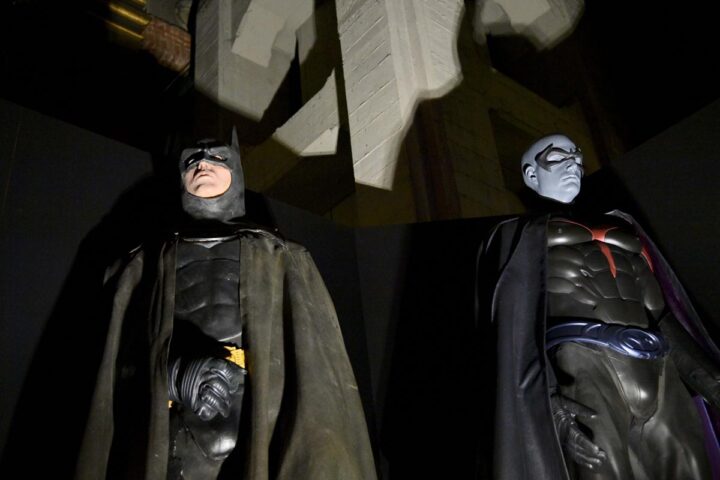“I admire its purity,” says Ash of the xenomorph in Ridley Scott’s Alien. The best films in the series are the ones that adhere to that philosophy. They keep their settings and premises simple and linear, pushed forward by the sheer panic of humans attempting to stay one step ahead of creatures that see them only as food and ideal hosts for egg incubation. At its best, Fede Álvarez’s Alien: Romulus is a winning attempt to get things back on the rails after the elaborate mythology introduced in Scott’s two prequel films, Prometheus and Alien: Covenant, threatened to stretch the thematic core of the series beyond its limits.
Written by Álvarez and Rodo Sayagues, Romulus takes place between the events of Alien and James Cameron’s Aliens. It follows a group of downtrodden young adults desperately seeking an escape from the planetary mining colony that super-corporation Weyland-Yutani controls as a quasi-serfdom. When they discover that a derelict space station passing over their planet contains enough cryostasis fuel to allow them to make a years-long voyage to a more peaceful world, the group takes a cargo ship into orbit to loot the vessel, finding out too late that it was a research facility for alien specimens gathered after the events of the original movie.
The de facto ringleader of this makeshift crew is the supportive Tyler (Archie Renaux), who clashes with his cousin, Bjorn (Spike Fearn), who’s caustic and bitter due to his tragic upbringing. Most interesting is Rain (Cailee Spaeny), who cares for her late father’s dilapidated android, Andy (David Jonsson), as if it were a sibling with special needs. These characters are quickly sketched in broad strokes, but the film also manages to communicate the shared history that binds them together, which lends more emotional weight to their inevitable losses.
At times, Romulus gives the impression that it’s what Aliens might have been if Cameron had received a budget large enough to afford more than a few xenomorph costumes. There are swarms of aliens here at all stages of the creature’s growth cycle, resulting in a never-ending wave of assaults. The preference for practical effects over CGI deepens the eeriness of facehuggers, chestbursters, and adult xenomorphs as they move with tactile believability. The use of physical sets establishes hard parameters to each location, emphasizing the characters’ lack of viable escape paths and causing one’s gaze to float all over the frame looking for creatures hidden among the cables and metal of the space station’s walls.
Álvarez takes more than a few pages from video games in staging some of the film’s most heartstopping sequences. The skittering, egg-implanting facehuggers that chase after the crew recall the Flood missions of the original Halo games. And certain moments in which characters attempt to hide from the fully matured xenomorphs are blatantly modeled on the gameplay of celebrated franchise tie-in Alien: Isolation, complete with efforts by characters to traverse alien-stuffed corridors as quietly as possible, so as to not alert the blind but hypersensitive beasts.
As he did with 2013’s Evil Dead, Álvarez may approach this beloved horror series with a relative lack of new ideas, but he certainly knows how to maximize what made the original movies so compelling. Compared to the too-clean surfaces and too-advanced technology on display in Prometheus and Covenant, Romulus gets back to the rusted exteriors and primitive computer interfaces of the original movies. This isn’t a future of ironically cheery technocracy masking avarice beneath its smooth exterior. Rather, it’s one that’s already dropped the façade and let the have-nots know that company town economics are now interplanetary and they’ll slave away throughout their short, nasty life for little more than food and board.
Occasionally, the film must contend with the larger complications introduced into the Alien mythos by the prequels, and this leads to a final act that feels shaggy and overburdened compared to the preceding 90 minutes. Still, Romulus ends up as the franchise’s strongest entry in three decades for its devotion to deploying lean genre mechanics.
The film also outdoes Scott’s more abstractly philosophical prequels in balancing Alien’s core themes of humans’ place in the cosmos, corporate malfeasance, and the sexual and reproductive subtext intimated by H.R. Giger’s original alien designs. And for a franchise that often lacks richly drawn characters, it receives two of its most fully realized ones yet in Rain and Andy, each fighting against natural and programmed survival instincts to stay loyal to each other.
Since 2001, we've brought you uncompromising, candid takes on the world of film, music, television, video games, theater, and more. Independently owned and operated publications like Slant have been hit hard in recent years, but we’re committed to keeping our content free and accessible—meaning no paywalls or fees.
If you like what we do, please consider subscribing to our Patreon or making a donation.





